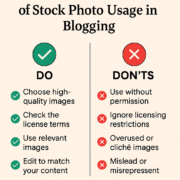Exploring Socially Responsible Marketing – How Businesses Can Grow While Making a Positive Impact
In today’s world, businesses are not only expected to make profits but are also responsible for creating a positive impact on society and the environment. Socially responsible marketing is the ethical way of promoting products and services while ensuring that they benefit society in one way or another. Consumers are getting more conscious about their purchases and want to support companies that are making meaningful contributions to society. In this blog post, we will explore the concept of socially responsible marketing and how businesses can benefit from it.
Understanding Socially Responsible Marketing
Socially responsible marketing has become an increasingly important aspect of the business world. It is a term that represents a commitment to ethical and sustainable practices in advertising and promotion. The concept goes beyond simply selling products or services to include consideration of the impact that marketing has on society and the environment. Socially responsible marketing takes into account the needs and well-being of all stakeholders including customers, employees, and the broader community. It requires thoughtful planning and execution, incorporating values such as transparency, honesty, and respect.
For example, socially responsible marketers understand that social media including Instagram and TikTok are used by younger kids, and as such they should be mindful of what messages they send on social media. By embracing socially responsible marketing practices, businesses can create a positive impact on the world around them while also improving their reputation and bottom line.
Benefits of Socially Responsible Marketing
Businesses that embrace socially responsible marketing can benefit in many ways. Firstly, they can connect with consumers who are looking for products and services that align with their values. They can also build a positive brand image and differentiate themselves from their competitors. Moreover, companies that contribute to social causes can also attract and retain top talent, as employees want to work for organizations that are making a difference.
Challenges of Socially Responsible Marketing
While socially responsible marketing can benefit businesses and society, it can also present challenges. For example, it may involve higher costs to use sustainable materials or donate to social causes. Companies also need to navigate ethical dilemmas when it comes to supply chain management, such as the use of child labor or the treatment of workers. However, these challenges should not deter businesses from pursuing a socially responsible approach, as the benefits of doing so can far outweigh the costs.
Steps to Implement Socially Responsible Marketing
First and foremost, start by identifying the causes that matter most to you and align with your brand. Next, establish clear goals for your social responsibility campaign and create measurable metrics to track your progress. It is also critical to communicate your efforts through your marketing channels and engage your customers to participate in your social responsibility initiatives. Above all, remember that socially responsible marketing is not a one-time effort; it requires ongoing dedication and commitment to make a real impact in the community.
Implementing effective socially responsible marketing practices is a great way to engage with customers and positively impact society. It can be time-consuming, and finding the right messaging for your brand can take additional effort. However, organizations can reap rewards by ensuring they stay up-to-date with all relevant regulations. Companies that foster ethical practices show their commitment to corporate social responsibility, which will boost customer trust and loyalty. Furthermore, businesses should not be afraid to seek feedback from customers in order to refine their approach to maximize the positive effects of their campaigns. In conclusion, incorporating socially responsible marketing into any business strategy is essential in order to comply with the relevant regulations and show respect for people affected by the organization’s actions. Doing so will make your business stand out positively, leading to customer satisfaction and enhanced brand recognition.




